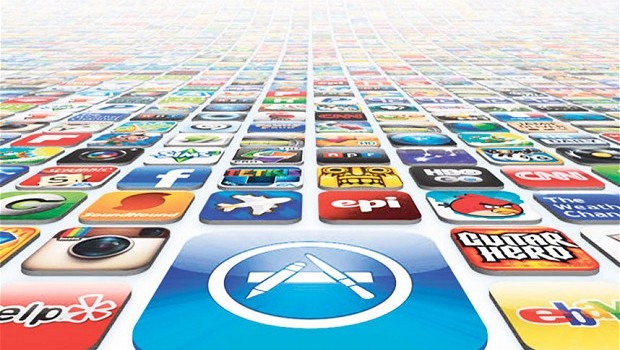It has begun, the age of the app.
Whilst the rise of the app has been a swift one, its eventual dominance was not unexpected. Therefore, critics and commentators met the news that the percentage of internet usage through apps has now eclipsed that of PC-based browsers without shock or surprise. However, this did not mean that everyone welcomed in the age of the app ceremoniously.
The reaction, which predates massively the actual realisation of the event, has been decidedly mixed with as many welcoming as damning what has become known as ‘App Culture.’
App Culture, or as we have rechristened it The App Age, can be loosely defined as the era where the usage of apps transcended from a novelty or accessory to fundamental component within daily life. This is the point where instead of occasionally using an app for frivolous enjoyment, people now have several apps they use daily and cannot function without.
An excellent way to illustrate this would be to depict the present, average day for any individual going to a sports event. For example, the Grand National – a highly-attended horse racing event in the UK. Around 10 to 15 years ago the entirety of the planning and attending of this event – whether that be Grand National betting, route planning or the picking of appropriate clothing – would have been done via mediums such as onsite betting shop, paper maps and television weather reports. However, betting apps, satellite navigation and weather apps would now be used in their place.
Initially this change may not seem remarkably different from the perspective of singular usage. But the issues occur when the spectator is confronted by the notion of not being able to access these various apps throughout the sporting event. Apps are not merely used once and then left at home, like the previous formats, but are repeatedly accessed throughout the day, which some argue depletes the user’s enjoyment of the real-life events going on around them. Therefore beloved and longstanding spectator events, like the Grand National, merely become a garden of plugged-in zombies.
Beyond this sociological argument, many consider the rise of the app to be detrimental to innovation. The concern being that the constriction and suffocation of the web browser by apps will make the former platform a ‘niche product’. The problem is that apps, by nature, are much more controlled forms of virtual interaction than open websites. Therefore, the fear is that by the web being made obsolete by apps, society is exchanging a more open virtual platform for one much more closely regulated and controlled. However, beyond these predictions of sociological doom or dystopian control, many have also embraced the notion of apps and all the benefits that come with it.
Many critics and commentators have complimented the ease of developing an app, with many custom app builders now being released, meaning that young entrepreneurs and developers can easily benefit from this accessible market. Because apps are virtual products that do not need physical production and the associated costs, people can upload their creations without having to seek huge and constricting investment. Moreover, due to the relative ease of designing an app, inspired individuals do not have to hire numerous programmers to develop it and therefore many start-ups have become massively more feasible.
Whilst the age of the app should be questioned it should also not be cited as the future destructor of humanity as we know it. The mainstream press have mined the subject for controversy in recent weeks, including the sensational reporting of the Apple App store price hike – which was down to new taxation laws – as a capitalist move of greed. Therefore, whilst the age of the app will create new problems, it will also solve old ones. Moreover, it all won’t matter when the next age dawns.




Leave a Reply